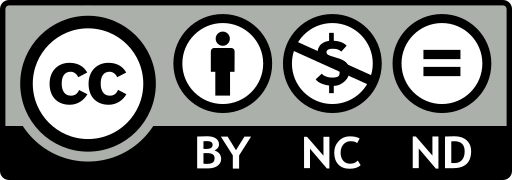Welcome to the International Energy Agency's (IEA) Annext 81 project on Data-driven Smart Buildings.
The work presented on this site gathers and reports on the technical details, business cases, and stakeholder stories associated with examples where data-driven solutions have been implemented in the real world. Each case study focuses on a particular building, technology, or dataset. The case studies presented here have been collected by Annex participants and reflect applications of smart building technologies from around the world.
Individually, the case study descriptions aspire to highlight a particular facet of applying data-driven smart building technologies. Each case study considers benefits and disbenefits, challenges related to applying such technologies, lessons learnt and unintended consequences. To understand the potential for adoption and success of any innovation, it is necessary to capture the relevant context. In this regard, we seek to understand the value proposition for the different stakeholders and how this can drive technological and business model innovation.
Collectively, the case studies help garner an understanding of the current state of practice and possibly help identify a path forward to critically understanding some of the benefits and challenges. It is common with technological innovations that hype usually raises expectations to unrealistic levels. While such hype might drive early adopters and researchers, actual adoption at scale is only possible when a clear value proposition exists and is demonstrated in practice. In this regard, we seek to collect knowledge from early adopters of such technologies and distil these so that the benefits can be understood by a wider audience and support evidence-based decision making or the development of relevant policies.
IEA's Energy in Buildings and Communities programme supports IEA Annex 81 (Research Project) on "Data-driven Smart Buildings", which brings together more than 100 collaborators from 19 countries. This activity is part of IEA Annex 81 activities.
The overarching aim of Annex 81 is to increase access to low-cost, high-quality data from buildings and support the development of data-driven energy efficiency 'Applications' and analytics. This will: (i) enable automated energy efficiency optimisation of building operations and (ii) provide energy efficiency data and decision support for building facilities managers.
The recent revolution in digital technology and cyber-physical systems has the potential to reduce costs and overcome barriers to energy efficiency through advanced control and operation of building HVAC systems. Emerging digital tools include
Unfortunately, progress in the digitalisation of building services has been slow, and the application of digitalisation for improving energy efficiency in buildings has not reached its full potential. Open data concepts have been proposed to reduce barriers and stimulate innovation in energy efficiency software services.
This project imagines a future world empowered by access to low-cost information-rich data from buildings through an open data-exchange platform, enabling software ‘Applications’ (such as model-based control and fault detection and diagnosis (FDD)) to scale rapidly.
Annex 81 strategy is to map the current technology and innovation landscape in non-domestic smart buildings and data-driven building services; we seek to collect information and provide inputs to support the definition of the tools developed within the Annex. Once these tools have been developed, activities within Annex 81 will seek to understand their performance and lessons learned and identify new service models. The knowledge generated will be communicated to relevant stakeholders such as academic, industry and government groups, and inputs will be fed back to the technical work of the Annex.
This research aims to map the current technology and innovation landscape in non-domestic smart buildings and data-driven building services. In this context, we seek to collect qualitative and quantitative information from case study buildings to develop exemplar technical briefs summarising the technical details, business cases and stakeholder stories associated with implementing these technologies in the real world. We will compile technical briefs and quantitative datasets (if available) with the information collected and communicate to relevant stakeholders from academia, industry, and government groups to advance the current understanding of smart buildings and data-driven solutions.
We are particularly looking at case studies with the focus on collecting qualitative narratives, including evidence relating to the implementation journey, benefits and disbenefits, outcomes and impacts arising from the implementation of smart technologies in the context of the case study building(s) exemplars received from IEA Annex 81 participants and extended network.
Barriers, incentives, and existing business models for stakeholders’ adoption of smart building technologies are also collected to investigate the potential of business model innovation and new smart data-driven strategies to reduce barriers and increase motivation for market adoption. Finally, quantitative information about the case study buildings (e.g., data from the building management system, building plans, etc.) is collected (if possible) and used for demonstration activities of data-driven applications.
Annex participants have identified relevant case studies in their countries and detailed case study leads to fill in a template while given some guidance. We have chosen contributors that have been involved in the decision-making or implementation of one or more smart-building technology solutions. The final version of each case study has been reviewed and approved by the contributor before its publication on the website.
The controller for this project will be University College London (UCL). The UCL Data Protection Officer provides oversight of UCL activities involving the processing of personal data and can be contacted at data-protection@ucl.ac.uk.
No personal data is being collected. We collect anonymous analytics to understand engagement with the content of this website.
If you are concerned about data processing on this site or would like to contact us about your rights, please get in touch with UCL in the first instance at data-protection@ucl.ac.uk. If you remain unsatisfied, you may wish to contact the ICO. Contact details, and further details of subject data rights, are available on the ICO website at: https://ico.org.uk/for-organisations/data-protection-reform/overview-of-the-gdpr/individuals-rights/
